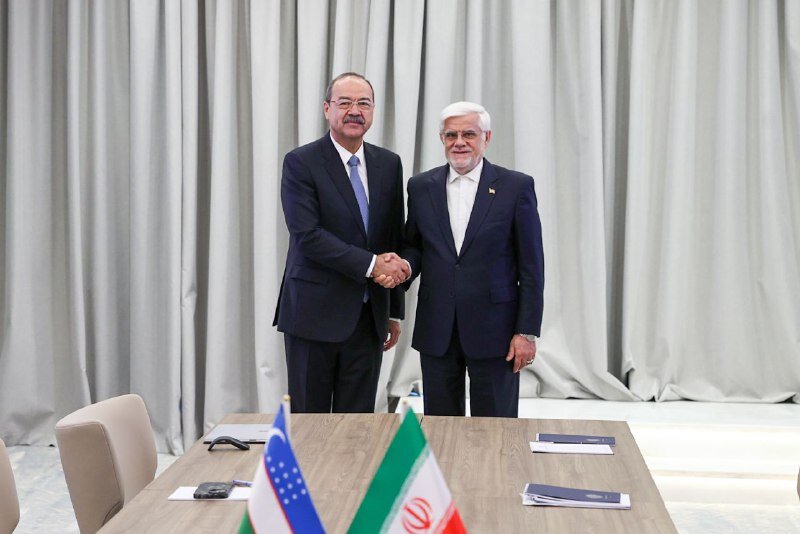Tehran prepares to host Uzbek PM for talks on expanding economic, political ties

TEHRAN – Uzbekistan’s Prime Minister Abdulla Aripov is set to arrive in Tehran on Sunday, leading a high-level delegation at the invitation of Iran’s Vice President Mohammad-Reza Aref.
The anticipated visit underscores efforts by both nations to deepen bilateral cooperation across trade, infrastructure, and regional diplomacy.
During his trip, Aripov will meet with senior Iranian officials, including Vice President Aref, to discuss "advancing mutual interests in critical sectors such as energy, transit corridors, and technology transfer," as stated by Iran’s government press briefing.
The Uzbek leader will also join a joint economic forum aimed at connecting business leaders from Iran and Uzbekistan to explore investment opportunities.
Central to the visit is the planned signing of multiple cooperation agreements, which Iranian media described as "foundational frameworks for accelerating joint projects and removing barriers to bilateral trade."
Ahead of the prime minister’s arrival, the Joint Commission for Bilateral Cooperation between the two countries convened in Tehran to finalize preparations for the visit.
Iran and Uzbekistan have intensified their partnership in recent years, driven by mutual interests in economic diversification and regional stability.
The late Iranian President Ebrahim Raisi’s administration actively pursued stronger ties with Central Asian states, culminating in a 2022 agreement with Uzbek President Shavkat Mirziyoyev to boost annual bilateral trade to $1 billion.
The two nations share historical ties through the Silk Road, and recent collaborations have focused on modernizing cross-regional infrastructure, such as the Uzbekistan-Afghanistan-Iran railway project, which aims to enhance trade connectivity.
Politically, Tashkent has supported Tehran’s integration into regional blocs like the Shanghai Cooperation Organization (SCO), while both countries advocate for Afghan stability and multilateral solutions to security challenges.
Uzbekistan’s pragmatic approach to Iran, including maintaining trade amid external sanctions, has fostered trust, enabling joint ventures in agriculture, energy, and technology.
Culturally, the bonds between Iran and Uzbekistan run as deep as their commercial and diplomatic ties. Centuries of mutual influence—sparked by the dynamic exchanges along the Silk Road—have woven a shared tapestry of art, literature, music, and philosophy.
Historic centers such as Samarkand and Bukhara not only stand as monuments to architectural brilliance but also bear witness to a legacy of poetic and intellectual exchange that continues to inspire vibrant cultural collaborations today.
Leave a Comment